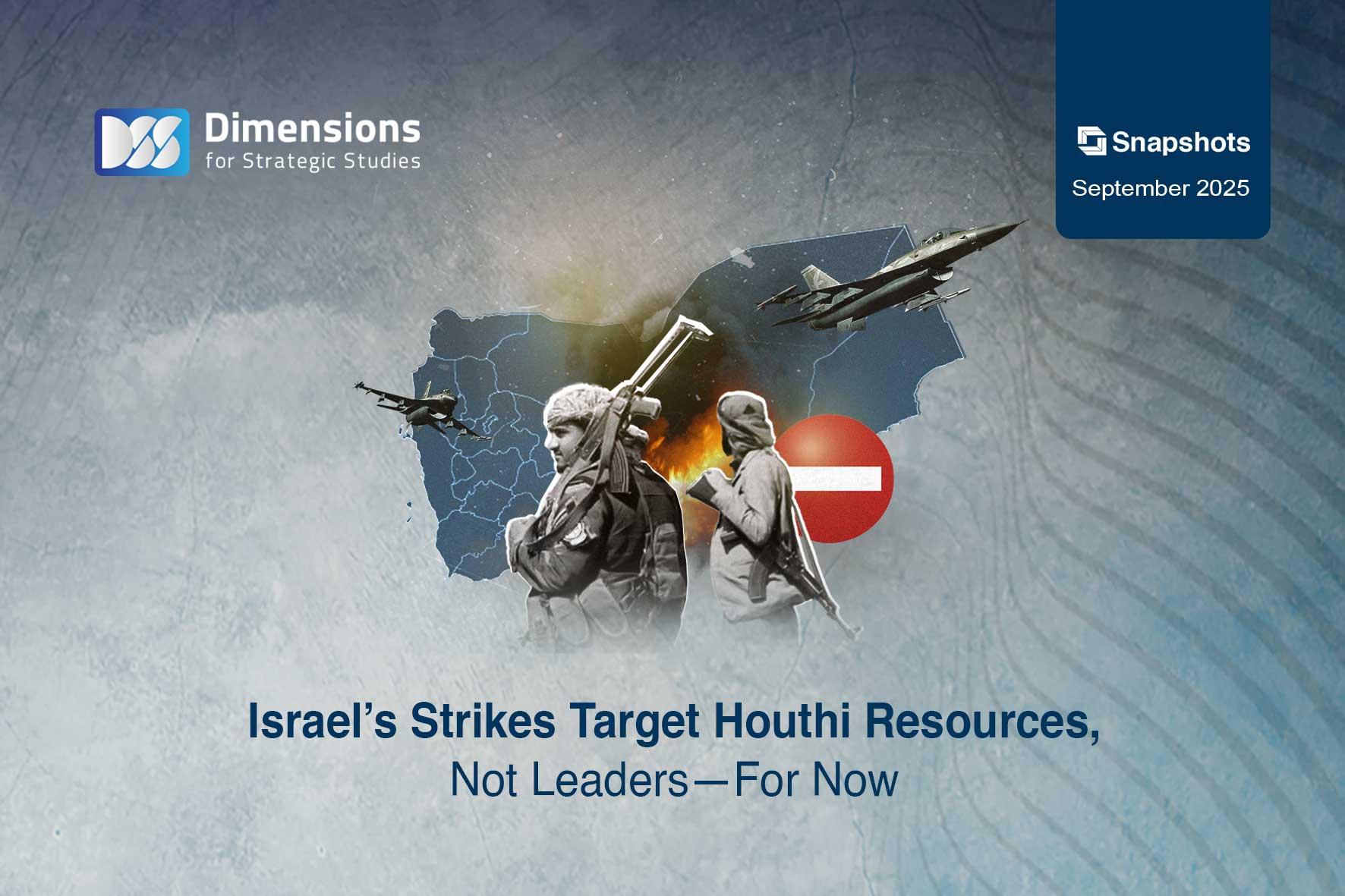
Israel’s Strikes Target Houthi Resources, Not Leaders—For Now
2025-09-072033 view
Over the course of July and August, Israel’s air force carried out around 20 attacks on Houthi sites in Yemen, the largest being an August 31 strike on a meeting of the Houthi-affiliated government in Sanaa.
That attack resulted in the deaths of the Houthi Prime Minister, Ahmed al-Rahwi, as well as Foreign Minister Jamal Amer and the Ministers of Economy and Investment (Moeen al-Mahaqri), Electricity (Ali Saif Mohammed Hassan), and Health (Ali Abdul Karim Shaiban), among others.
About a week before that, Israel had bombed a key oil facility in central Sanaa, as well as the Haziz power station in the south, resulting in civilian casualties.
Since mid-2025, Israeli retaliatory raids against the Houthi group have focused on vital facilities such as the port of Hodeidah, fuel storage tanks, and water and power plants. All this indicates a deliberate approach aimed at crippling the Houthis’ ability to provide services to the local population, particularly electricity and water, while also depriving the group of financial resources, whether from fuel sales or commercial activity via the port.
Yet despite this bombing campaign, it is striking that the scale of Israel’s attacks against the group’s military leaders has decreased compared to its targeting of civilian infrastructure.
This may indicate that the group and its international supporters have achieved partial success in securing military and security leaders and preventing a recurrence of the scenario suffered by Hezbollah in Lebanon.
However, it cannot be ruled out that Israel is avoiding assassinating Houthi leaders at the current stage. These could include a lack of American support for this option, notably given demand from regional powers. After all, such a scenario could completely obstruct the implementation of the peace roadmap for Yemen, which was initially brokered by regional powers.
Israel’s current policy of refraining from targeting the Houthi military and security leadership does not necessarily rule out this option entirely in the future.
Israel is likely to resort to such a strategy in the case of another regional escalation, renewed confrontations between Iran and Israel, or if Iran’s allies in Yemen and Iraq respond to such an escalation by intervening to in support of the Islamic Republic. In this scenario, Washington may well give Israel a green light to expand the scope of its strikes to include Houthi leaders or factions within Iraq’s Popular Mobilization Forces.





